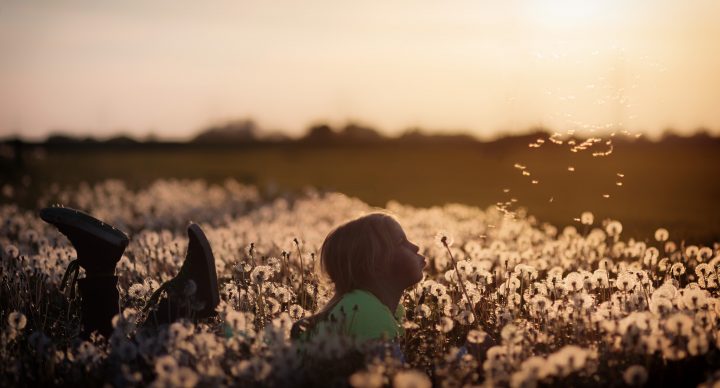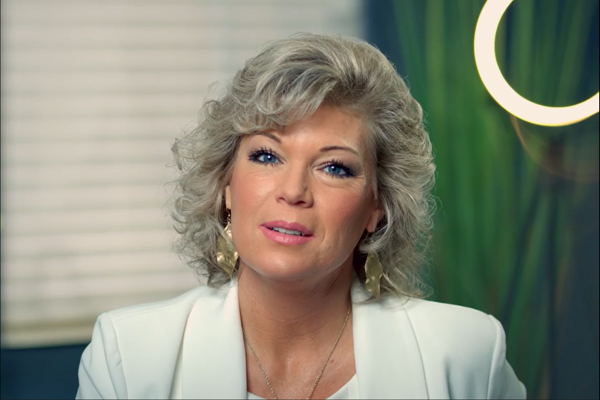Elementary Social Development – Level 1

Course Features
Course Details
Course Overview
The Acellus Elementary Social Development course is the first course in the elementary pathway focused on social development and emotional well being. Taught by Dr. Pajet Monet, this course addresses basic social and emotional concepts that every child needs - from getting along with others to self esteem, from learning to be aware of the feelings of others to dealing with insensitive people or emotionally challenging situations. Dr. Monet's sincerely caring attitude radiates out to students, helping them to accept the life-enriching ideas she presents. Addressing serious issues that students will encounter throughout their lives, Dr. Monet encourages students to realize that even at a young age, they are the captains of their fates, that they control where their lives will go, and that they have the power to overcome any adversity and become truly amazing people.
Sample Lesson - True to the Core
 This course was developed by the International Academy of Science.
Learn More
This course was developed by the International Academy of Science.
Learn More
Scope and Sequence
Designed to help students develop socially and emotionally into happy, responsible, productive adults, the Social Emotional Learning - Elementary course begins by discussing students' personal characteristics, strengths, and values, and how important it is that they remain true to their core values. Students explore how they can use the choices they make each day to control their lives, and they consider the concept that there are boundaries that they need to respect and responsibilities they need to shoulder. They learn what it means to be inspired, and that being inspired is a choice they make. They discuss how to be considerate and respectful, and how their attitudes shape their successes. They learn how developing good personal hygiene and a regular daily schedule can improve their lives. We all have fears, and students discover that they can face those fears instead of being controlled by them. They take a good look at how cheating and disruptive behavior will take them down paths that will lessen their happiness and success. They learn to face and deal with problems, thereby minimizing the issues while empowering themselves. They explore time management, goal setting, and thinking things through to their conclusion. They consider the impact of perspective, and they practice turning negatives into positives. Next students examine personal success. By realizing that the things they choose to see will stay with them for the rest of their lives, they become empowered to choose carefully. They explore the difference between a habit and a goal, and where each takes them. They discover that they, like a spark, can effect change. They gain understanding of the detrimental effects of being boastful. They realize that they have their own superhero strengths that they can draw upon. They discuss the value of learning from others as mentors, and of approaching life as a symphony that they get to compose. Students are guided into thinking about what kind of mark they want to make on the world, how to obtain support when they need it, and looking toward the good the same way that sunflowers follow the sun. They discuss what makes a person a hero, and how they can be heroes, too. They learn what courage is, as well as what police officers are there for and how to interact with them. They explore getting involved and contrast that with the self-defeating nature of being self-absorbed. They learn strategies for dealing with feelings of isolation and the difference that attitude can make in times of loneliness. They study how to choose role models, and how to be one, as well as what point of view is and how to use the awareness of it to understand and interact appropriately with others. They investigate the difference that a point of view can make, how to choose the mode they want to be in, and how to use the art of communication. Students discuss the meaning of dignity, humility, and respect. They learn the power of magic words and explore the inspiration that is found in beauty. They discover that they are not that different from those around them, and that they can empower, encourage, and affirm others and their abilities. They study how to be the kind of person who starts good things. They examine the idea that thoughts eventually become spoken words, and they discuss the power of the words they speak. They consider the definition of privacy and of proprietary, and what these concepts mean in their lives and their relationships. They decide how to control the media and electronics that surround them, and realize that thoughts drive behavior, and behavior builds character. They explore the ways that shyness can be manifested, and what to do about it, and they learn to take initiative. Students gain understanding of and explore ways of dealing with bullying. They learn to advocate respectfully, to use their power as a bystander, to understand what makes someone an enemy and how to change that. They explore stress and success, as well as anger, built up steam, complex emotions, and how they sometimes dig an emotional trench and get stuck in it. They study how to analyze their own emotions. They learn to create beauty from negative experiences. They discuss the attributes of seasoned actors that can help them in their lives. They discover that they can think through the outcomes of their decisions to help them choose what they really want, and they analyze how to control their emotions rather than be controlled by them. Next students are presented with the Mid-Term Review and Exam. Students examine their own personal qualities and their own personal learning styles. They discover that happiness adds years to life. They talk about Spring -- a time of new beginning -- and about the interconnection of effort, attitude, and achievement. They realize that they can use their actions and demeanor to reach out to others in a positive way. They determine what it is that, for them, constitutes a good day. They learn what it takes to overcome obstacles and how to recover from broken dreams. They learn how planting their roots deep will anchor them, giving them strength for the hard times. They look at how they can make their lives enchanted. They explore the relationship between practice and progress. They come to understand that all people are of worth. They discuss how to admit mistakes graciously and without emotion, how to recognize and purge out ugly emotions, and how to soar above the clouds. They discover that they can think through the consequences of their decisions in order to make good decisions, that they can control the effect of even negative memories on their lives, and that they can gain control over weakness, self pity, and blaming. They study the butterfly, and learn that, like butterflies, they can do the impossible. Next students explore how they can let go of things that really don't matter, develop good self esteem, and build their goals. They investigate elements of success, including grit and resolve, goals and discipline, concentration and strategies, and the nerve to fail. They examine discouragement and the illusion of discouragement, how by the choices they make, they build chains that either bind them down or strengthen them, and how accountability can empower them. They consider the importance of living their own lives -- being who they really are -- instead of trying to live someone else's life through imitation. They study the cost of silliness, and how to get a running start on their lives. They discuss behaving with integrity, living life to the fullest, and what it really means to gather wealth, to be environmentally responsible, and to take care of their surroundings. They learn to listen for the sounds that mark the end of their personal storms, and to watch for experiences that can shape them. They explore how to deal with scars and regrets, and how to use their gifts and handicaps to become better people. They study how to give constructive feedback and how to deal with guilt trips. They begin to understand relationships, how it helps to look beyond a person's façade, and to deal with the truth. They discuss the impact of relationships on their lives and discover how to be their own personal referee. They explore building relationships, how they sometimes manipulate each other, and how they can keep themselves free of grudges and free of contention. They come to understand what peer pressure really is and how to deal with it. They explore the dangerous request, "Don't tell anyone," and how to make sure that friends who need help get it. They take a step back to look at social media, its effect on them, and how to control it and use it for uplifting things. They look at dealing with difficult situations and negative vibrations and how to move forward by patching and inflating their emotional tires. They learn the attitude of finding solutions and study eagles as inspiration to be their best selves. They explore the art of working together and contrast the attitude of being stubborn with the attitude of getting along. They consider how to use sincere apologies to improve relationships, and they investigate etiquette and how it can benefit them. They compare facts and opinions. Students explore the powerful phrase, "Thank you." They examine the beauty in diversity and the power in learning from the past. They consider how to resolve conflicts and how to respond in a crisis. They look for the lighthouses in their lives and think about how they can become lighthouses for others. They resolve to make a difference and observe the power in being needed. Students discuss planning their futures and setting goals for their career paths. Finally they comprehend that now is their time, that this is their life, and that they can make themselves and their lives truly amazing. Students are next presented with the Final Review and Exam.
This course does not have any sections.






